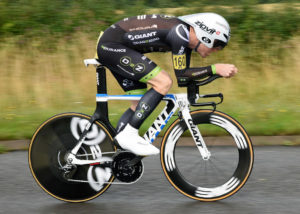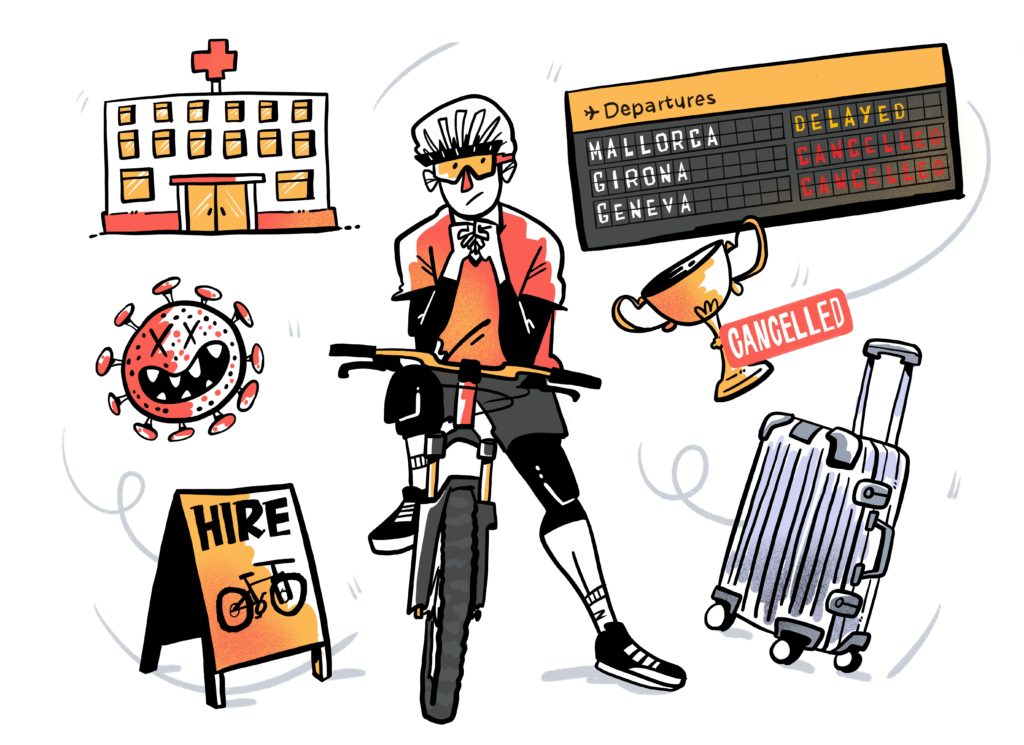Our 100 Mile cycling training Plan
Consistency and structure are key to a successful plan. Following a training plan will help you optimise your time, stay on track and improve all areas of your cycling performance. Working around a 4-week structure is a good template to use when building for an event like the Wales Sportive. Week 1 is a moderate week to assess your current fitness, power levels and to ease you into the plan. Week 2 is a more sustained week, building intensity into your training. Week 3 is the hard week and will push you out of your comfort zone just before a 4th week dedicated to recovery and adaptation.
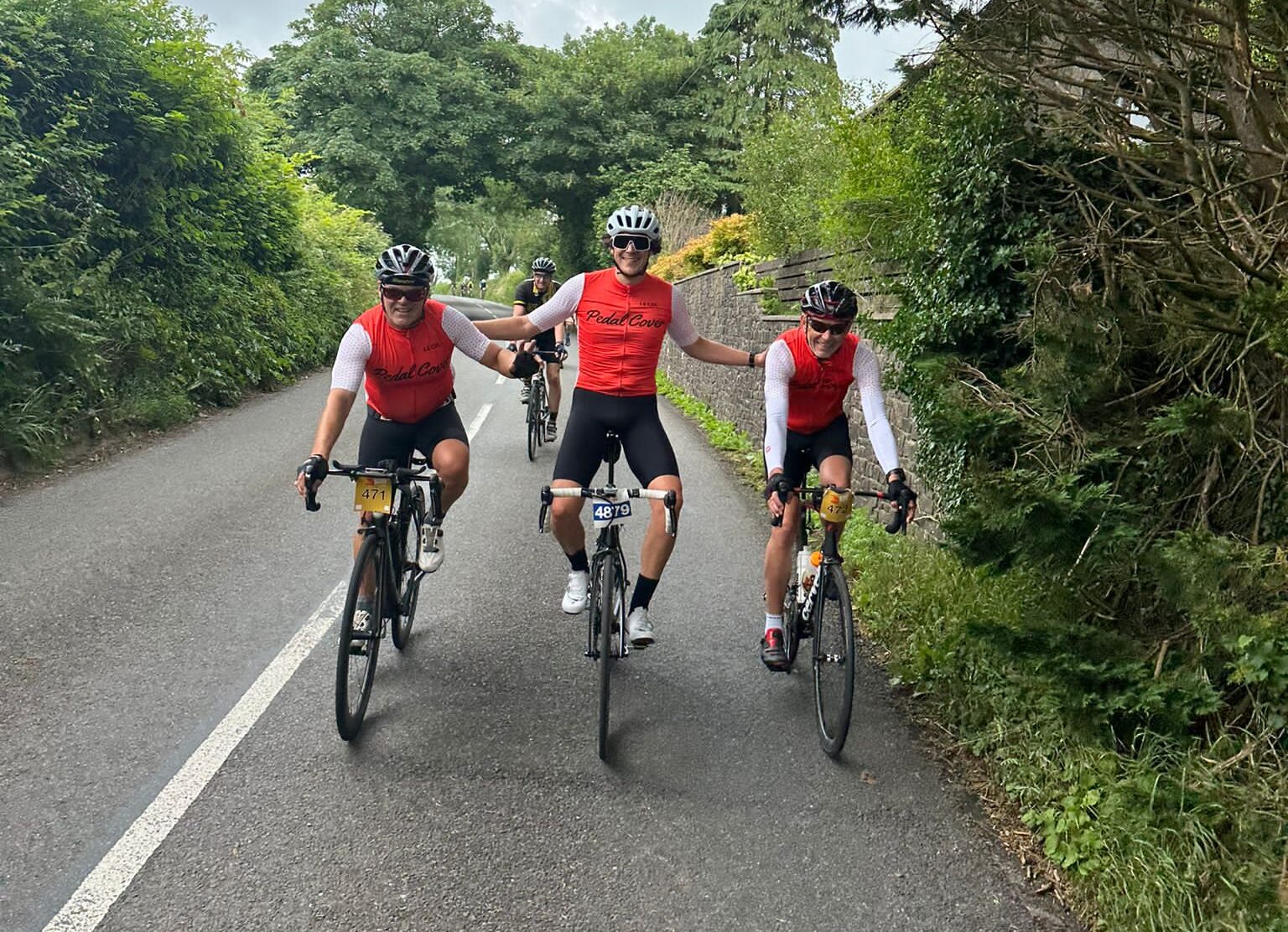
How to use this training plan
The 100-mile training plan -which you can download as a pdf below- sets out a series of training sessions over a 12 week period. Each week is rated as “Easy”, “Medium”, “Hard” or “Recovery”, but the training sessions will ask more from you as you progress. The training sessions take place either indoors or out on the roads and ask you to focus on your cadence and intensity.
Indoor: Using a smart turbo and app such as Zwift. Measure effort using power output (W), functional threshold power (FTP) or rate of perceived exertion (RPE).
Outdoor: The focus of outdoor sessions is to just get out on the road, get used to time in the saddle and improve bike handling. You should aim to increase the duration steadily, getting close to the distance you’d be expected to ride on the day.

Jargon buster
Functional Threshold Power
(FTP) is used to measure a cyclist’s sustainable and anaerobic threshold. It represents the highest average power output a rider can maintain over a one-hour period without fatiguing excessively. FTP is often expressed as power output in watts.
To determine FTP, cyclists commonly perform a specific test, such as the FTP test, where they ride at maximal effort for approximately 20 minutes. The average power output during the 20-minute test is then multiplied by a correction factor (typically 0.95) to estimate the one-hour power.
Understanding your FTP is valuable for designing training plans, setting intensity levels for workouts, and tracking improvements in your cycling performance. It serves as a benchmark for establishing training zones, allowing RIDERS to tailor their workouts to specific intensity levels based on a percentage of their FTP.
One of the best ways of finding out your FTP is by using a smart trainer parred with an app such as Zwift.
Cadence
A low-medium will be around 50-70 RPM
A medium cadence around 70-90 RPM
A medium/high cadence 90-110 RPM
And a high cadence 110+ RPM
Intensity Ratings (RPE)
| Rating | Description |
| 0 | Nothing at all |
| 0.5 | Very, very light |
| 1 | Very Light |
| 2 | Fairly light |
| 3 | Moderate |
| 4 | Somewhat hard |
| 5 | Strong |
| 6 | Hard |
| 7 | Very Hard |
| 8 | |
| 9 | |
| 10 |
Very, very hard |
Key Session types:
Tempo Sessions: These are longer sustainable aerobic efforts at tempo pace. They improve aerobic capacity, pedalling efficiency & cardiac output.
Example Power Zone 2/3 – 75% to 90% of FTP. Heart rate: 66 to 75% of max. RPE: 4 to 6 . Block length: 10 to 30 minutes.
Threshold Sessions: Medium length intervals just below and above your threshold. Improves lactate threshold, sustained race-pace power & cardiac output.
Example Power Zone 4 – 95 to 105% of FTP. Heart rate: 76‑ to 85% of max. RPE: 6 to 8. Block length: 10 to 15 minutes.
Strength endurance sessions: Longer intervals at a medium to low RPM. The aim is to work on increasing your muscular strength. This will be beneficial for climbing ability.
Example Power Zone: 3/4 – 75 to 100% of FTP. Heart Rate: 66 to 85% of max. RPE: 5 to 7. Block length: 10 to 20 minutes.
Your 100 Mile Training Plan:
You can bookmark this page, or print off our 100 mile training plan here!
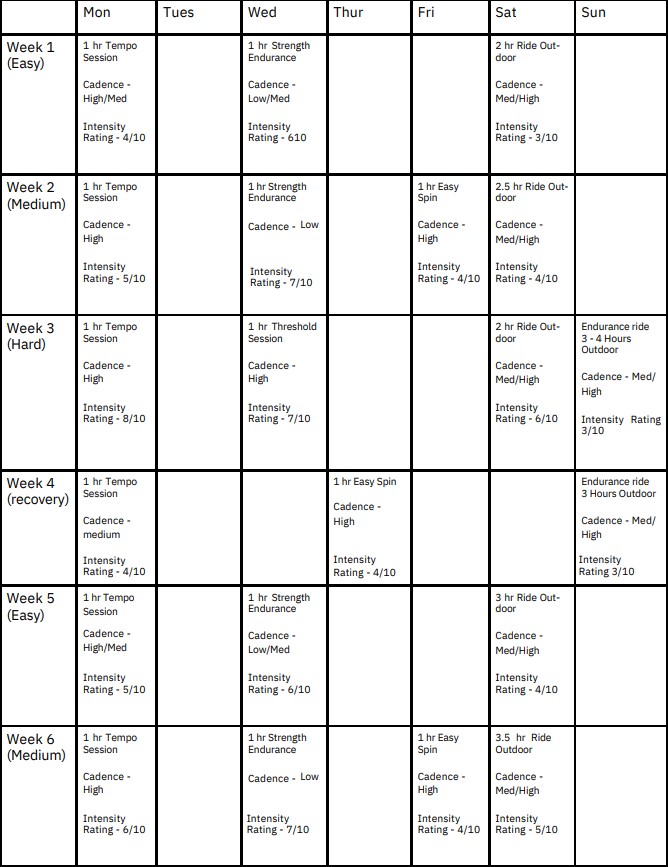
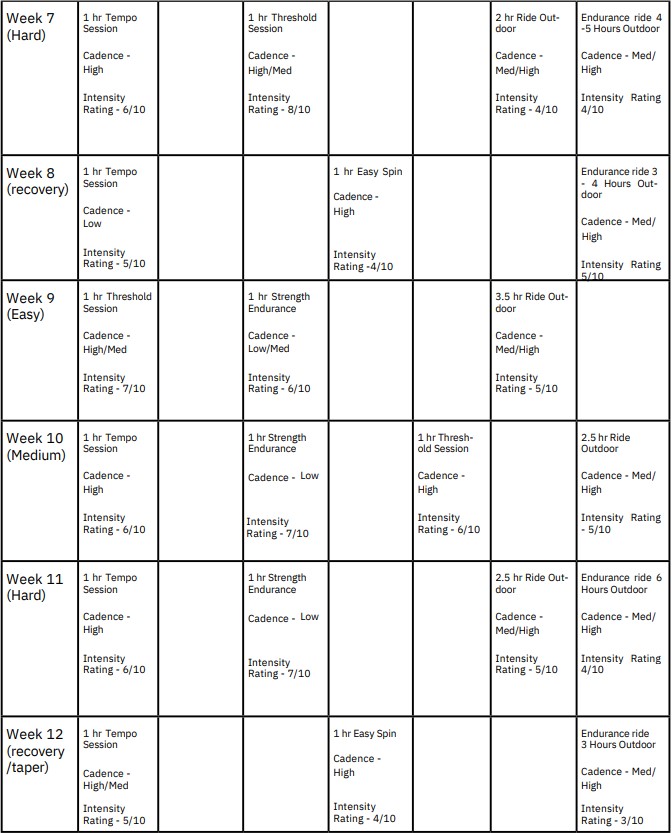
If you are thinking of taking on a sportive, it’s worth checking to see if you have the correct level of insurance in place. Pedal Cover offer a combined home and bicycle policy, travel insurance and also bicycle only insurance policies to cover sportives, cycle racing and cycle touring. If you need any help, just give our friendly support staff a call on 0800 121 4424





